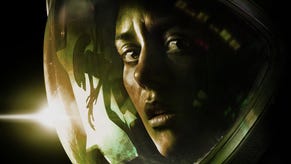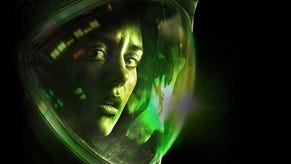Alien Isolation PlayStation 4 Review: Acid-for-Bloody Brilliant
A vast, methodical, nerve-rattling, and above all faithful video game rendition of a cinema classic... for better and, occasionally, for worse.
This article first appeared on USgamer, a partner publication of VG247. Some content, such as this article, has been migrated to VG247 for posterity after USgamer's closure - but it has not been edited or further vetted by the VG247 team.
Creative Assembly's Alien: Isolation launches in a few days, though Sega is letting the press publish reviews today. Unfortunately, I'm nowhere near finished with the game, thanks to a combination of travel, illness, and jet lag. I guess I could have rushed through it miserably for a review, but this game has been 35 years in the making. I'd rather take my time, too.
Besides, of all the games I've played this year, Alien: Isolation is most worth savoring. The final product has proven to be every bit as satisfying as the various demos I've played over the past few months; the game succeeds on multiple levels. It's a magnificent piece of fan service, the most gorgeously and brilliantly realized virtual adaptation of a movie universe ever committed to polygons, yet its devotion to the source material doesn't come at the expense of playability.
It couldn't have happened to a better film. Alien wasn't simply a seminal piece of science fiction film, but a landmark work of horror as well. Creative Assembly has drawn most heavily on that latter element to create Isolation, reimagining the Alien cinematic universe as something along the lines of Enemy Zero or Clock Tower: A full-length tale of the "final girl" trope (which Alien itself employed by making Ellen Ripley the sole survivor of the Nostromo incident) in which an implacable, indestructible beast stalks the player throughout the entirety of the adventure.
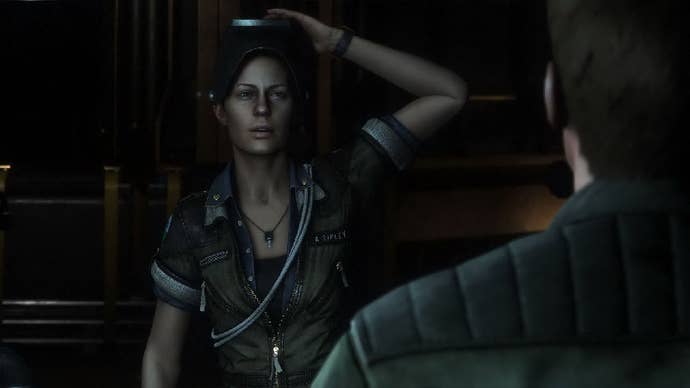
Isolation conforms to a few contrivances in order to make it an interesting game, the most noticeable of which is the way that the sole xenomorph in sprawling Sevastopol Station almost always seems to be on the prowl where protagonist Amanda Ripley (daughter of Ellen, determined to find her missing mother) happens to be. This is more of a necessary evil than anything else, though, and in any case the game does ease off from time to time.
In fact, that might be what most impresses me about Isolation so far, several hours into the story. Creative Assembly hasn't simply imitated the look and sounds of Alien but also its pacing. The story takes quite a while to bring you to the point where you're facing actual danger; for the first hour (or more) of the game, Amanda is safe from any but minor environmental threats. But, as with the Nostromo crew (or the marines of the Sulaco, in one of the few similarities Isolation has with the second film in the franchise), once the xenomorph enters the fray, everything changes.
Isolation makes the most of the video game medium as a conveyance of horror. Where the Alien movies tend to involve a cast of characters slowly being whittled down in numbers by the alien's predation in order to escalate tension and express the threat inherent in the creature, Isolation is more of a solo affair. Amanda and the player become the "crew," dying at the beast's hands and then continuing to try again. That's not to say this is an entirely solitary affair — despite the game's title, you're not totally isolated from others. Besides the medium's now-standard voices-in-the-ear offering advice and exposition from the people who ally themselves with Amanda along her journey, Sevastopol is also littered with audio logs on analog cassettes, BioShock-style.
Still, this is very much a solo experience, and as such it doesn't play at all like a first-person shooter, despite wrapping itself in the conventions of the genre. Isolation rolls back decades of Alien universe video game adaptations, which have cheapened the terror and presence of the eponymous life forms to serve as mere cannon fodder. From countless shooters where they drop like flies to brawlers like Capcom's (admittedly fun!) Alien Vs. Predator, few games have ever treated the xenomorph with the sort of awesome sense of danger that Alien (and even Alien 3, for all its flaws) imbued the creature with. But here, it serves the same role as the Nemesis from Resident Evil 3 or Silent Hill's Pyramid Head: An unstoppable force of nature that can only be evaded or avoided, never fought hand-to-hand.
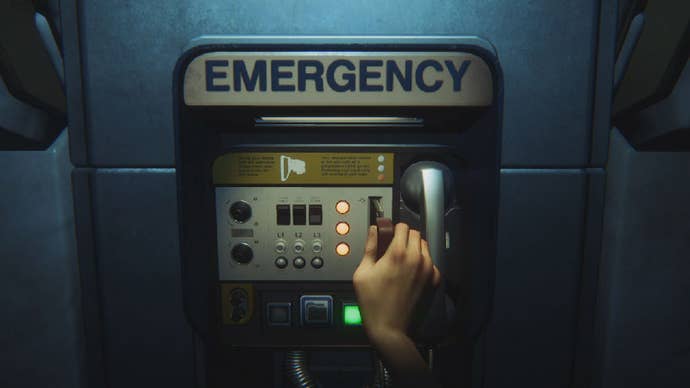
Part of the genius of Isolation is that it makes clear from the start the methods you need to employ to survive here — move slowly, stay silent — and then consistently upends your situation again and again so that this philosophy is more easily said than done. It's all well and good to creep silently out of sight when it's just you and the Big Chap in a lonely stretch of station. But that becomes much more difficult when the desperate last survivors of Sevastopol show up to treat you like an invader, or you're forced to make a mad dash for the exit as a timer runs down, or you have to activate some sort of computer system that activates whooping klaxons that make it impossible to track the alien's movements through the station by sound. Isolation constantly escalates the situation, introducing new wrinkles to the task of escaping the creature lurking in the background and forcing you to adapt your tactics to chaotic or unpredictable situations.
And yet, the game doesn't simply operate at full throttle all the time. Like the movie that inspired it, it's a series of ups and downs. You cycle through extended sequences of unbearable tension, moments of desperate action, and periods of relative quiet to regroup and regain your bearings. The plot does follow familiar plot beats... though I'm still relatively early in the adventure (I assume; maybe it's just a super short game), so there's plenty of time for the game to surprise me.
But in a way, I don't really need Isolation to surprise me. The strength of what Creative Assembly has done here comes from the way they've presented us with a chance to enter the world of a film franchise that's become so familiar to gamers as to feel hackneyed, yet have done it in a way that no other game to date has attempted. What I've played of Isolation succeeds not because it does something wild and unexpected with Alien's universe but rather the opposite: Because it's so true to the spirit of the source material.
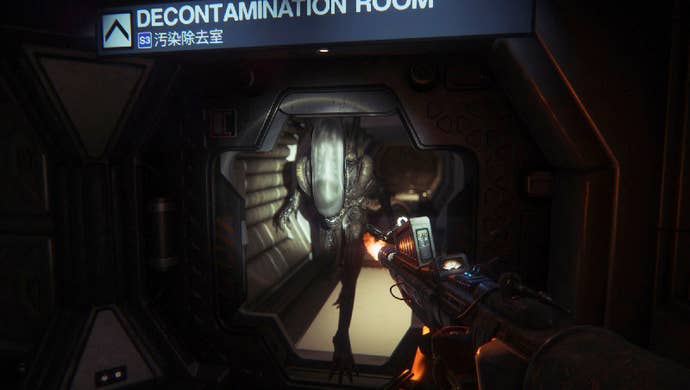
As adaptations go, it's a towering achievement. Even if the game itself played like hot garbage, you couldn't help but admire the sincerity of the team's affection for the movie. Sevastopol Station truly and brilliantly recreates the world of Alien, from tiny details like the environmental typography and the charmingly dated late '70s/early '80s conviction that Japan would become an interstellar economic superpower, to more gut-level details, like the nerve-rending scrape of metal vent covers irising open. Everything in the world is wonderfully analog in nature, from the manual save stations to the all-important motion tracker, which feels like a proper realization of what iD tried to do with Doom 3's gun-or-flashlight mechanic. You can bury your face in the motion tracker to gauge the current threat level as you traverse the station, but this slows you down, renders the rest of the world an out-of-focus blur, and leaves you vulnerable — like a more dangerous version of looking at your smartphone as you cross the street.
Most of all, Isolation makes the alien the star of the show. As in the best horror, you never really get much of a glimpse of the xenomorph. If you can see it clearly, it can see you clearly, which means you probably have about half a second to take it in before it leaps across the room and rams that weird proboscis-like second mouth through Amanda's skull (game over, man). It's bigger than you, faster, stronger, with acid for blood and the ability to survive in the vacuum of space. Amanda's just a normal space mechanic, a humble blue-collar denizen of the Alien universe. It's not really a fair fight, and that's what makes it so compelling.
Final Review
I have heard people refer to Alien: Isolation as one of the scariest games they've ever played. I can't say I agree. Tense? Yes, absolutely. My muscles ache from spending the weekend in a state of constant tension, creeping about a space station avoiding being caught by an alien menace. But scary? Nah.
Perhaps this comes across as splitting hairs, but I think making this distinction is essential to properly coming to terms with Isolation. "Scary" suggests it's a horror game, an exercise in fear and shocks. It's not. Isolation is tense because it's a stealth game, and a damn good one at that.
It's a huge one, too; after all this time, I'm still not quite finished with the game, though it seems I'm edging close. I'm certainly comfortable putting a number on it at this point; I've spent close to 20 hours in Sevastopol Station at this point, and I don't look at the remaining hours as a burden but rather an opportunity to see things through to the end. I could have finished by now if I'd rushed, but that would be missing the point... not to mention spoiling the experience.
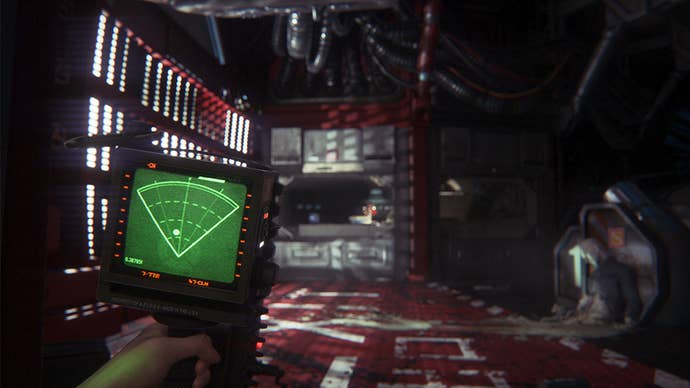
More than any game I've played in ages, Isolation feels like it was specifically designed for me and my particular tastes. It's not just that it perfectly recreates the world of Alien, though I certainly love that about the game. It's that it does so while channeling the essence of the best Metal Gear and Metroid adventures — yes, Metroid. I suppose it's only fitting that after borrowing so much from Alien through the years, Metroid in turn gets ripped off by an Alien game. Throughout your mission, you'll come across locked-down doors that can only be opened with tools you acquire much later in the game — ion and plasma torches, key cards, passcodes, and more — and that simply beg the completist player to creep back to the otherwise useless opening areas of the game. And for what? Some extra collectibles or data log entries, mainly. Pointless, perhaps, but intensely compelling if you allow yourself to become immersed in this world. Since it's built, faithfully, around one of the most brilliant and iconic sci-fi odysseys of all time, that immersion comes easy.
But, admittedly, you need to enjoy the game itself as well, and that's more of a task. Isolation requires you to approach it on its own terms, and those terms can be demanding. For most of the game, you'll find yourself either unarmed or else mired in situations where gunning down one foe will put you immediately into a far more dangerous state of affairs. You can play boldly if you like, but doing so generally proves to be suicidal. Your chances of survival will improve considerably if instead you take things slowly and quietly and play patiently.
The question, I suppose is: How patient are you when you play video games? Do you enjoy stealth, or do you need the occasional release of a murder spree to break the tension? Because the tension in Isolation goes on for long, long stretches, and the game offers very little release. You get breathers, yes, but traditional video game catharsis is rare here, and it's always hard-earned.
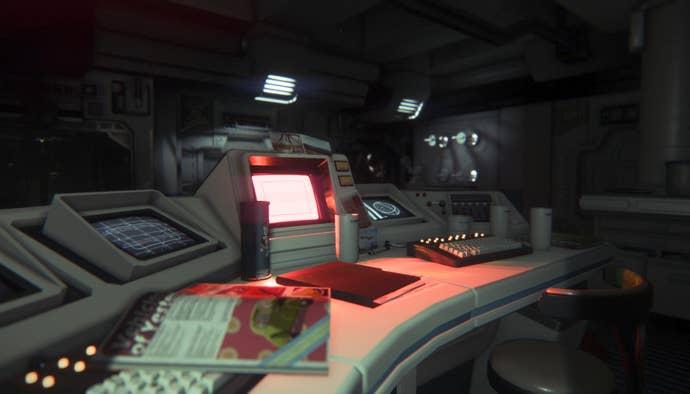
For my part, I'm perfectly happy to lay low and take my time in games like Metal Gear or Deus Ex. I prefer to play as non-lethally as possible, and that trait serves me well here. If you get a thrill from sneaking past a room full of guards as Adam Jensen or completing a mission in Mark of the Ninja without performing a single kill, Alien: Isolation will be right down your alley. If you love when Metal Gear gives you interesting means for distracting or defeating foes indirectly, you'll find Isolation's crafting system completely addictive. If you're looking for jump-scares and bloody horror, though, you'll find yourself frustrated by the glacial pacing of Amanda Ripley's quest. And if you're after a traditional first-person shooter experience... well, there's always Colonial Marines.
Despite the fact that Isolation has lived up to my admittedly lofty hopes and expectations, it does have its shortcomings. Or rather, one multi-faceted shortcoming: It never quite escapes the mundanity of being a video game.
Creative Assembly has deliberately built the game as a companion to a classic film, and you can't really experience Isolation without holding it next to that inspiration. As a game — a collection of objectives and mechanics in a gorgeously crafted environment — Isolation soars. As a sequel to Alien, though, it all too often comes within inches of crashing to the ground.
For starters, there's the protagonist, Amanda Ripley. While she makes for a decent enough video game heroine, she doesn't begin to compare to her mother, a legitimate silver screen icon. Her dialogue is trite, and actress Andrea Deck's delivery lacks the edge that Sigourney Weaver brought to Ellen Ripley. The game's dialogue is where it most fails to recapture the spirit of the film, though; Ridley Scott directed Alien with a naturalistic, improvisational style that made its characters feel grounded and real, while Isolation's cast simply marches through the scripted motions of the video game, spouting the usual video game clichés to justify the next action sequence.
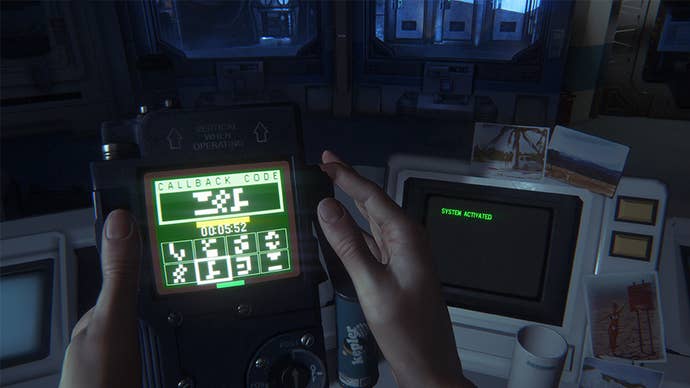
The first-person perspective of the adventure introduces its own problems. By the format's very nature, players take the role of the younger Ripley from start to finish... which means that every interesting or meaningful action in the game falls on her shoulders. Here's an injured ally who needs you to find help; here's a frightened man who hides (BioShock style) behind a partition while you do the grunt work. It's how video games work, yes, but it doesn't lend itself to good storytelling. Consider the original Alien and how little Ripley did: She stayed on the ship while the rest of the crew discovered the Alien nest, her quarantine order was countermanded, and she nearly died at the hands of a renegade android. It wasn't until the final third of the film that she finally found the need and the resolve to take the lead. Meanwhile, Amanda is the center of the universe, a fact underscored by the Alien's peculiar habit of frequently hanging around wherever she happens to be. Sevastopol Station is huge, and yet the creature's scraping, thudding footfalls dog you throughout most of the journey.
As for the Alien itself, it's almost but not quite a masterpiece of creature design. It looks and sounds perfect, and its complex role in the game — sometimes an active threat, sometimes a passive one, and sometimes a handy way to achieve your own ends — makes for a truly unique creation. Its sheer power and speed go a long way toward restoring the grandeur and intimidation of the Alien, so carelessly squandered by countless games that have come before. But it's precisely because the Alien is generally so impressive that its occasional failings take you out of the experience. When it does things like camp outside the locker you're hiding in for 10 minutes, sitting motionless a few feet in front of you until you lose patience and jump out of hiding, the illusion breaks a bit. While this is easily the most daunting representation of H.R. Giger's otherworldly creature since Alien itself, its massive role in the game means you have plenty of opportunities to see its intricate scripting and mechanics break down for a moment. And you're reminded: Oh, yes, it's just a video game.
Still, despite these flaws, Alien: Isolation really does offer a unique and remarkable rendition of one of science fiction's most enduring properties. While it's most likely to appeal to people who sit at the very specific intersection of Alien fandom and love for stealth action games (such as myself), it represents such a magnificently detailed and ambition attempt to recreate the world of an iconic movie that everyone should at least play for a little while, if only to see this major step forward in the relationship between games and film.
VisualsBesides the human character models, who dwell firmly in the uncanny valley, it's an absolutely gorgeous game, taking '70s-vintage set designs and drenching them in HDR shadows.
SoundAn essential piece of the game. Everything from the sounds the Alien makes to the way Amanda's breathing quickens when a threat is nearby works as player feedback — as do the brilliant remixes of Jerry Goldsmith's classic score.
InterfaceA fairly complex but effective control scheme is nicely complemented by a retro-looking and largely diegetic heads-up display. Stylish, functional, and faithful to the film.
Lasting AppealFor stealth fans, Isolation's sprawling environments offer dozens of hours of addictive action. Everyone else might be better off sticking to the movie-based DLC material, though.
ConclusionWhile it has a few rough patches and may prove too slow and drawn-out for some players, Isolation does an amazing job of capturing the essence of a classic film and recasting it as a video game. It can be a little too easy to see the man behind the curtain at times, but this is nevertheless one of the finest film-to-game adaptations ever... and a fantastic stealth adventure in its own right.


